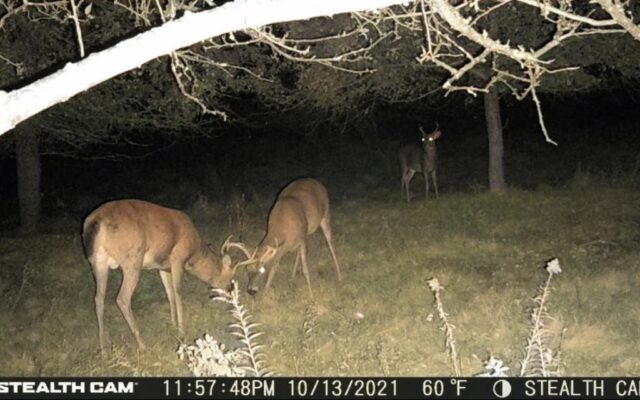
Trail cameras allow hardworking Mainers to hunt successfully
By Jared Bornstein
The notion of “fair chase” was recently brought up by writers criticizing trail camera use in a recent letter to the editor and column. “Fair chase” itself is a subjective opinion held by some outdoors authors, government officials and others committed, it seems to me, to making the lives harder for the working-class hunter.
The definition of “fair chase” varies wildly from state to state and even wilder from country to country. For example, fair chase in Maine means we do not bait deer, however we bait bear, and in many southern states they consider baiting deer and bear fair chase. Similarly, we have a narrow set of species that we are allowed to use hunting dogs for here, but in some countries in the progressive north of Europe they can essentially use hunting dogs for everything. In some of the nordic countries they even run moose with hounds. There is no standardized model of “fair chase” as much as some people want you to believe there is.
Fair chase as a model was first mentioned by the Boone and Crockett club, the types of “hunting” they were seeking to end with it were things like driving deer into a lake and then clubbing them from boats. This was an effort to combat commercial and subsistence hunters taking too much game. Boone and Crockett Club mentions “Conservation was based on the fact that people need and will use natural resources, including wildlife, but this use would now have to be regulated and guided by science.”
So, sure, if trail cameras are found to be the reason deer, moose and bear populations are anemic, ban them. None of those populations are a concern, however. The Maine Department of Inland Fisheries and Wildlife successfully manages them using licenses and permits. In fact, Maine hunters repeatedly fall short of deer harvest goals.
In his letter, Jerry Stelmok says: “I believe that reliance on [trail cameras] to locate, track and ultimately kill game is an abuse by individuals who should be out in the field ‘hunting’ for their quarry. Any game harvested primarily by their use is a hollow achievement…”
This argument is offensive to me. It is also illogical and disregards how difficult hunting is even with methods aimed at increasing success. This argument ignores our working-class Mainers who, because we do not have Sunday hunting, may get only four to six days a year to rifle hunt deer.
Trail cameras allow these hard-working Mainers to ensure that they are in a solid spot for the limited hours that the state and their work schedule allow them to hunt. It has nothing to do with being lazy. In fact, I would assert that someone working full time at a mill, as a law enforcement officer or as a nurse is a much harder worker than most other hunters who have the luxury of taking a week off during deer season.
The offensive language “hollow achievement” when describing an animal harvested with the assistance of a trail camera is disparaging toward the thousands of low-income Mainers who are looking to supplement their diets with nature’s bounty this fall. In my experience, for the majority of Maine hunters, hunting is not a sport. It is a means to an end, that end is quality protein sourced from nature. When a hunter’s children are eating backstrap, the nutrition in their bellies is not diminished because mom or dad knew it was a good spot to hunt because of a trail camera. No, they are proud of their family’s ability to at least feign self reliance at a time when we are all over reliant on corporate and government systems.
The only standard by which game should be managed is an objective biological one, with harvest goals, methods, seasons and strategies dictated by the needs and opportunities of the wildlife. Mainers do not need anyone’s opinion on their achievements.
Bornstein is a Democratic lobbyist, hunting advocate, and Registered Maine Guide. He lives in Skowhegan.